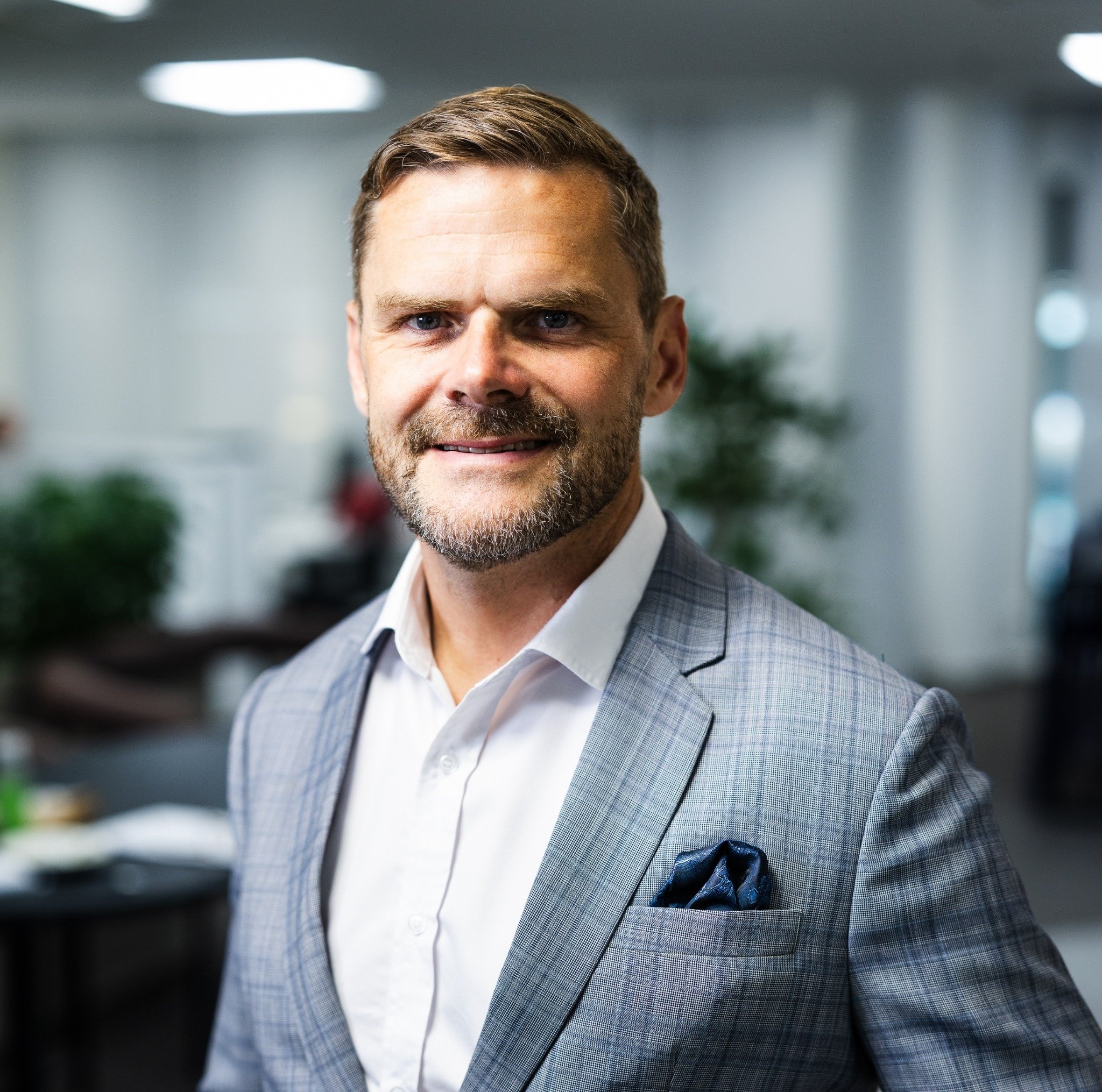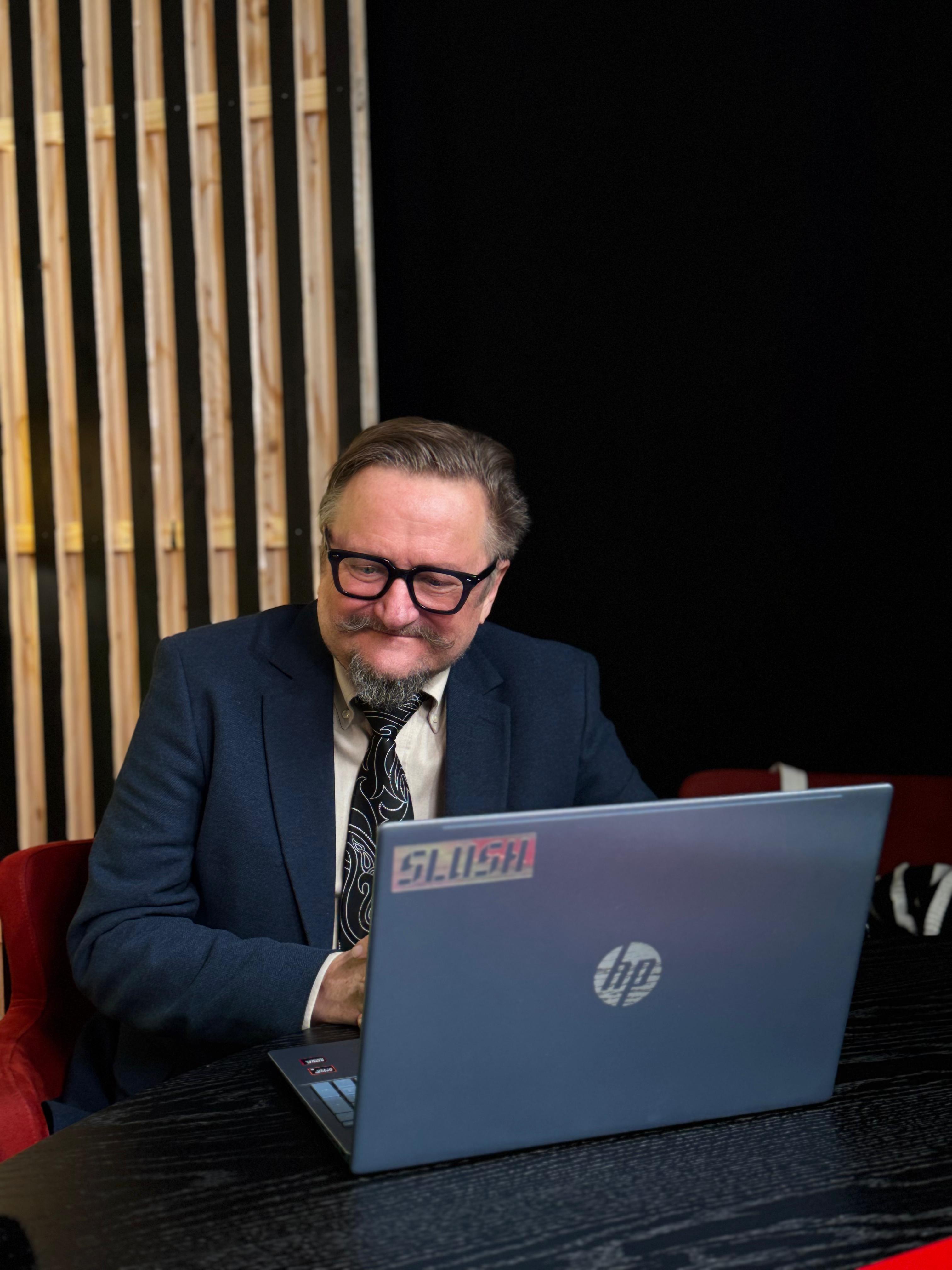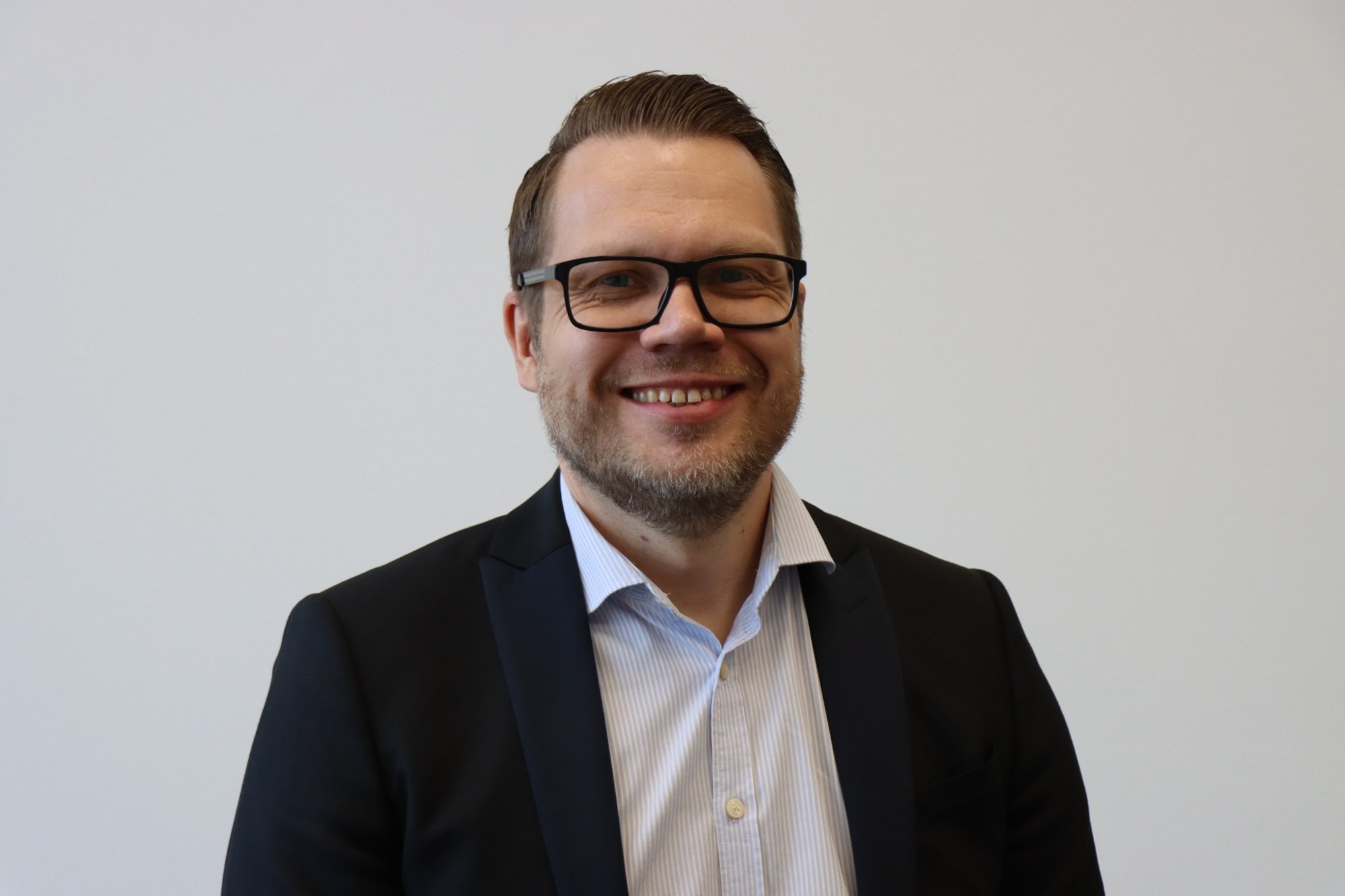Thomas Luther, Nevel: On the ESG journey, you must recognize its economic value
Energy infrastructure company Nevel has been on a journey towards climate-positive growth over the past three years. The company invests in carbon-neutral and carbon-negative solutions and has growth with a fast pace, doubling its turnover in the past years. CEO Thomas Luther has learned key lessons along the way about starting new business.

“The Finnish DNA includes responsible action, honesty and transparency. Still, we have a hell of a lot of work to do for every company to understand the importance of ESG and take it forward,” says Thomas Luther, CEO of energy infrastructure company Nevel.
Nevel is founded in 2019. The company's parent company was state-owned, and operations were based on burning peat and biomass for energy and district heat for municipalities and industrial partners. Nevel was sold in 2020 to European private equity investor Ardian, which focuses its activities on sustainable energy and infrastructure projects, among others. The company passed into Ardian ownership in early 2021.
Thomas Luther took over as CEO of Nevel in 2022. The new owners had a strong will to develop a responsible business. There was a lot of work to do.
“I set out to build and implement a climate-positive growth strategy.”
Climate-positive growth means three different things to Nevel. The company wants to increase the climate positivity of its customers, wants to grow as a climate-positive company itself, and wants Nevel employees to grow climate-positive as professionals.
“Everyone can do climate-positive things in their personal life, recycle, save fuel and decide not to fly. In a company with a lot of investment opportunities to mitigate the climate crisis, you can make a really big impact in the workplace.”
Three years of hard work
Luther has been involved in the Growth Collective for nearly ten years. When he started at Nevel, he made an outrageous promise according to the Growth Collective way: Nevel would go into the biogas business.
“Biogas was a transformative opportunity for us. Our new strategy started from three paths of development. They were growth in the existing business, expanding the offering in the existing business, and a transformation into something new.”
For Nevel, growth in its existing business meant new investments in industrial cooperation and expanding its district heating business. Expanding the offering in the existing business has included, for example, electrification solutions for energy production for existing customers.
In line with the climate positive strategy, responsibility is at the core of it. Among Nevel's customers, Fazer, for example, is moving from natural gas to electric boiler and heat pump-driven energy at its Lappeenranta confectionery factory, following an investment. As a result, the factory's CO2 emissions will be reduced by approximately 90 per cent on an annual basis and the emissions of the Fazer Group as a whole by more than 10 per cent.
Luther describes the transformative biogas business as a challenging path. The key lesson, looking back, is that you didn't understand well enough what kind of business they were venturing into.
“We did not have the internal competence that we should have developed and had even before we entered the biogas business. You might think, as a layman, that biogas is a similar activity to what we do anyway, but it really isn't.”
The biogas business is built at Nevel, for example, so that biogas is produced from sludge from a water treatment plant or bystreams from the food industry.
“You cannot use any side stream to produce good biogas. It's a chemical, biological process. Apart from the details of production, the pricing and operation of the final product in the biogas market is different from elsewhere,” Luther explains.
Aiming to triple the company
Nevel's turnover is currently around 150 million euros, and there are about 190 in-house specialists in Finland, Sweden and Estonia. When Luther looks back at the three-year stint as a whole, he highlights five transitions that the company has systematically invested in.
The development in customer orientation has challenged customers to set more ambitious climate targets and urged them to developed solutions to achieve them. Process development has ensured quality, efficiency and competitiveness. By investing in our own personnel and culture, employees are committed and motivated. Investing in the various areas of ESG has ensured the most important thing, namely growth.
“We have already doubled ourselves in this time. The point is to triple the company. This is a significant goal for an infrastructure company.”
Luther thinks it is wrong to think that ESG is just a framework for communication or reporting - he thinks it is used to create a responsible, financially viable business. Nevel has defined was each aspect of ESG means for the company.
E. Nevel has clear carbon neutrality targets. The company is committed to carbon-neutral district heat energy production by 2030. The offering is developed to supports the transition of industrial customers towards a sustainable energy system and the reduction of CO2 emissions. Emission reductions throughout the whole value chain in energy production, as well as material efficiency targets for utilising side streams are also important.
S. From a social perspective, the most important themes are physical and psychological security, as well as information security. In the past year, Nevel has not had a single accident resulting in absentions or medical treatment. Information security is ensured not only at the company but also at the individual level by training employees.
G. We operate in accordance with regulations and are transparent about the activities of our 130 facilities. However, our own responsibility targets have been set even higher than the requirements. We have a very extensive risk management process and our own audit committee.
What purpose guides you?
ESG, in Luther's view, is first and foremost a value question.
“It brings personal value. The company's purpose is also my own purpose. That's where it has to start.”
If a company embarks on an ESG journey and believes in it, it is important to recognize the business value as well. According to Luther, money cannot be ignored; it is the basis of doing business and part of responsible management.
“In principle, Nevel could be carbon-neutral next year, but it would not work in a business sense. The essential thing is to be bold and ambitious enough without sacrificing the success of the business.”
Luther, by his own example, wants to encourage companies in all sectors to see the possibilities of ESG. He understands that in sectors that have become accustomed to using fossil raw materials, change is more difficult.
“You have to penetrate through the supply chain and the entire customer value chain. The whole chain needs to embark on the journey. Otherwise, the features may deteriorate, the price will rise, or the processes will become too difficult and slow.”
Sometimes solutions in the green transition can also mean sacrificing the basic business. That is why the commitment of senior management is a priority.
“Change has to come from the top. You have to have the courage to break old practices, educate people, create new business and earning models and earning logics. It requires a total transformation.”
It also often requires a change of personel. Luther knows that people are a company's main asset and engine of growth. During Nevel's growth journey, the number of staff has doubled, yet at the same time the team has undergone changes and turnover in staff.
“Now we are at a record high in NPS measurement. The fighting spirit of the staff is fierce. We want to hold on to our customers and look deep into their carbon neutrality and climate goals. What can we do differently to hit our targets?”
Nevel
Nevel is an energy infrastructure company that helps customers grow and succeed by building sustainable energy and material efficiency solutions for the future. Nevel's customers include industrial operators and municipalities. Nevel employs 190 experts in Finland, Sweden and Estonia. Its turnover is 150 million euros.
Thomas Luther has worked as Nevel's CEO since 2022. During Luther's time, the company developed a new, climate-positive strategy and the business has been significantly reformed in many different ways.
Newsletter
If you're ready to scale your business across borders, Growth Team provides the insights, community and support you need to succeed.


.jpg)

